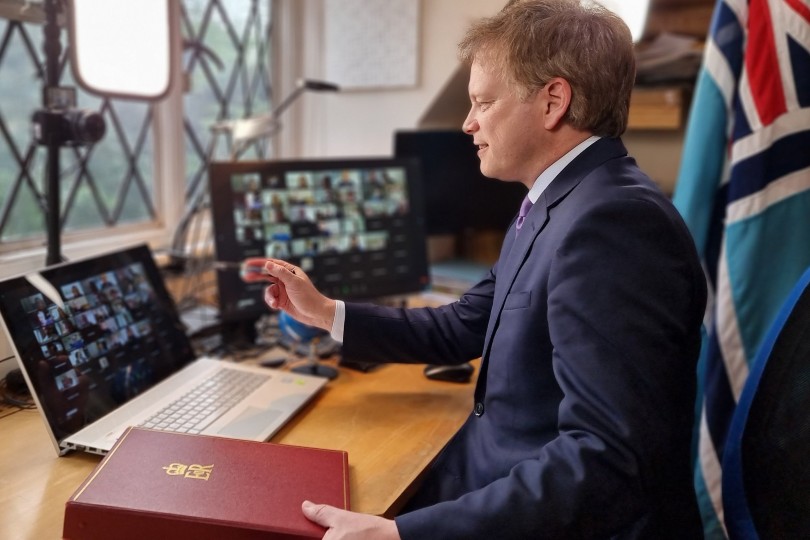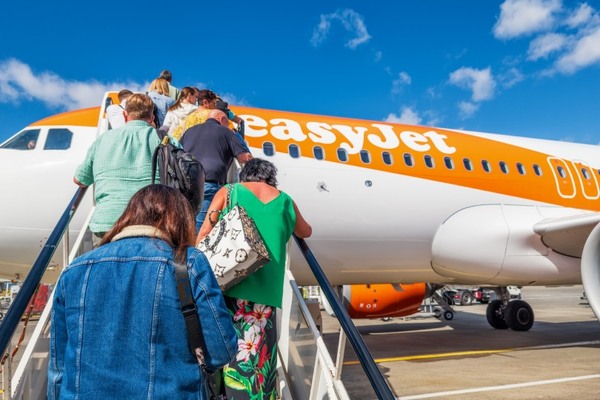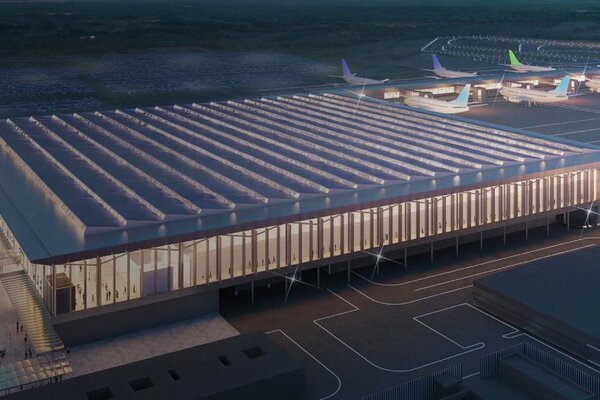Grant Shapps wades into airport chaos blame game
 James Chapple
James ChappleGrant Shapps waded into the airport chaos blame game on Wednesday (1 June) accusing airlines and operators of "seriously overselling flights and holidays" at a time when the industry doesn’t have the staffing capacity to deliver some of these trips.
There has, for several months, been low to moderate disruption at several UK airports, notably Manchester airport, following the easing of the UK’s Covid travel restrictions in March, with the issue broadly attributed to the sector’s inability to staff up sufficiently following the Covid crisis.
Birmingham airport chief Nick Barton last week revealed Birmingham has almost halved its workforce during the pandemic, and warned problems would likely continue throughout the summer with the airport still "about 15% short" of the level of staff it needed.
Barton added the industry had been given about two to three days’ notice that the UK’s inbound travel restrictions would be lifted on 18 March, and that demand and appetite for international travel "came back almost immediately". "We had to race to catch up," he said. "The service levels we’re used to giving simply couldn’t be met."
The Queen’s Platinum Jubilee bank holiday weekend is now proving to be the first major test of the industry’s resilience, with millions looking to get away this week and over the weekend. Several airlines, including easyJet and Tui, have pre-emptively reduced their schedules to ease the disruption.
EasyJet will cancel "around 24" flights a day, every day, until 6 June "to provide reliable services", while Tui on Tuesday (31 May) confirmed it would be cancelling multiple flights a day from Manchester airport until the end of June. British Airways has been taking similar steps for several weeks.
Speaking to the BBC, Shapps vowed to meet with airlines, airports and ground handlers as a matter of priority "to find out what’s gone wrong" and "how they are planning to end the current run of cancellations and delays".
"Despite government warnings, operators seriously oversold flights and holidays relative to their capacity to deliver," said Shapps. "This must not happen again and all efforts should be directed at there being no repeat of this over the summer – the first post-Covid summer season."
The industry, though, has been quick to defend itself and its record. Advantage Travel Partnership chief executive Julia Lo Bue-Said, who joined Independent travel correspondent Simon Calder on the BBC’s Your Questions Answered for a travel special on Tuesday (31 May), said: "Fronting the media yesterday, working within the outbound travel industry, is so incredibly frustrating. You cannot shut down an entire global industry, destroy its image, switch it on then off, destroy families, lives, businesses and then try and find someone to blame."
Airlines UK, the trade body for UK registered airlines, said the crisis arose from two years of the UK being subject to one of "the most restrictive travel regimes in the world".
"The sector has had only a matter of weeks to recover and prepare for one of the busiest summers we’ve seen in many years," said chief executive Tim Alderslade. "Despite this, and without the ability to know when restrictions would be completely removed or predict how much flying would be possible over the summer, the vast majority of the many tens of thousands of UK-departing flights a week will be operating as scheduled.
“The focus now should be on our customers with airports, airlines and government working together in the best interests of Britons to ensure they get away over the summer.”
‘Uncertainty’
The Airport Operators Association (AOA) echoed Alderslade’s comments. “Airports anticipated it would be challenging at peak times as the industry seeks to restart and have had big recruitment campaigns under way since before the start of this year," said the AOA.
"But until the restrictions were lifted, uncertainty about the future of travel made this difficult. Since then, there has been a very positive response and airports are now seeing additional staff completing the required vetting and training, and being deployed. As a result, while queues may be longer at certain times at some airports, most passengers are getting through airport security – and away on their holidays – smoothly.
"Airports are working closely with airlines and ground handling companies to facilitate check in, baggage handling and on-time departures. We will work closely with them and with government to ensure we are ready for the summer getaway - the first proper summer holiday period since the start of the pandemic."
Iata chief Willie Walsh, meantime, pointed the finger at government-mandated security clearance for new aviation workers, something Shapps pledged to address in April. “The problem is, you can’t start the training until you’ve got the security clearance," The Guardian reports Walsh as saying.
"You offer them a job, they accept it, and then you have to go through this period of three months to get security clearance – they’re not going to hang around. They’ll go and find a job somewhere else.”
In late April, Shapps said the government would lay new legislation to allow airports to start training new staff while they await security clearance.
Currently, this screening takes place before any training can begin. Shapps said while he couldn’t compromise security, he believed it was an area where the government "could assist with the bureaucracy".
Sign up for weekday travel news and analysis straight to your inbox

James Chapple
Supplier Directory
Find contacts for 260+ travel suppliers. Type name, company or destination.












